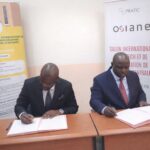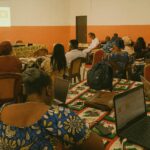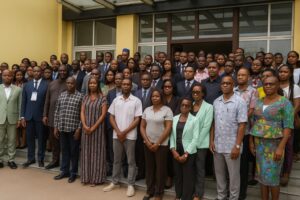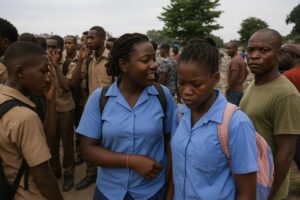A Nationwide Academic Ritual
At dawn on 15 July, the calm courtyards of 542 examination centres—from Impfondo on the Oubangui to Pointe-Noire’s Atlantic littoral—were suddenly animated by 125 265 adolescents clutching transparent envelopes and hopeful expectations. The Brevet d’études du premier cycle, a national rite of passage at the junction between lower and upper-secondary schooling, opened under the auspices of Minister of Pre-school, Primary, Secondary and Literacy Education Jean-Luc Mouthou, who ceremonially unsealed the first envelope in Brazzaville’s Lycée de la Révolution.
The figure represents a 2.60 percent rise in participation compared with 2024, a progression consistent with demographic growth and the expansion of junior-secondary capacity recorded by the Ministry’s statistical yearbook (MEPPSA 2025). Observers from the United Nations Educational, Scientific and Cultural Organization positioned in key centres reported punctual starts and an atmosphere described as “disciplined yet confident” (UNESCO 2024).
In brief remarks carried live by Télé Congo, Minister Mouthou praised teachers for navigating an academic year marked by intermittent rainfall and lingering public-health precautions. “We have worked throughout the year so that, like previous sessions, this examination will be a success,” he said, assuring candidates that the administration had “faith these four days will unfold in the best possible conditions.”
Managing Growth and Integrity
Logistical pressure has inevitably accompanied the surge in enrolment. The Ministry mobilised nearly 9 000 invigilators and introduced a barcode system that links scripts to biometric data, a procedure piloted with support from the African Development Bank’s Education Project Unit. The innovation, officials argue, curtails the margin for impersonation and accelerates post-exam marking—an operation traditionally challenged by long riverine distances between the Cuvette and Sangha regions.
Integrity remains a fulcrum of the state’s narrative. During a capacity-building seminar in June, the minister reminded supervisors that any candidate caught cheating would face a three-year exclusion from state examinations, while complicit staff would be subject to disciplinary boards in line with the 2022 Ethics Act on Public Service. Transparency International’s regional office has commended the clarity of the sanction grid, noting it aligns with best practices promoted by the Inter-African Conference on Education Quality.
Diplomatic and Socio-economic Ripples
Beyond the confines of examination halls, the BEPC session radiates political symbolism. Diplomats stationed in Brazzaville view the smooth conduct of such mass assessments as a litmus test for administrative resilience, particularly as the country prepares to host the Central African Economic Community summit later this year. A senior European Union education attaché described the operation as “a convincing rehearsal of inter-ministerial coordination,” echoing remarks by Prime Minister Anatole Collinet Makosso that education remains “the first budget priority” despite fluctuating oil revenue.
Socio-economically, the cohort’s trajectory bears directly on national human-capital indices. According to the World Bank’s latest Human Capital Update, each additional year of lower-secondary completion could raise lifetime earnings by up to 9 percent in the Congolese context. Analysts thus interpret the expanding BEPC roll as an early indicator of future productivity, particularly salient for the government’s 2022–2026 National Development Plan that earmarks science and technology streams for diversification away from hydrocarbons.
Looking Beyond the 2025 Cohort
As scripts are ferried to regional marking centres, attention is already turning to reforms slated for the 2026 session, including tablet-based multiple-choice modules and the integration of Lingala and Kituba language competencies. The reforms dovetail with the Congo Digital 2025 strategy, which envisages cloud-based repositories to secure exam archives and facilitate longitudinal data analysis for policymaking.
In the words of Professor Antoinette Tsikaya of Marien-Ngouabi University, “The BEPC is not merely an assessment; it is the hinge between foundational literacy and specialised skills.” Her observation resonates with projections from the African Union’s Agenda 2063 that underscore youth empowerment as a continental catalyst. By safeguarding credibility and widening access, Congo-Brazzaville positions itself to harness the demographic dividend embodied by the 125 265 teenagers who sat in silent concentration this July, their future intertwined with the republic’s own promise.




















